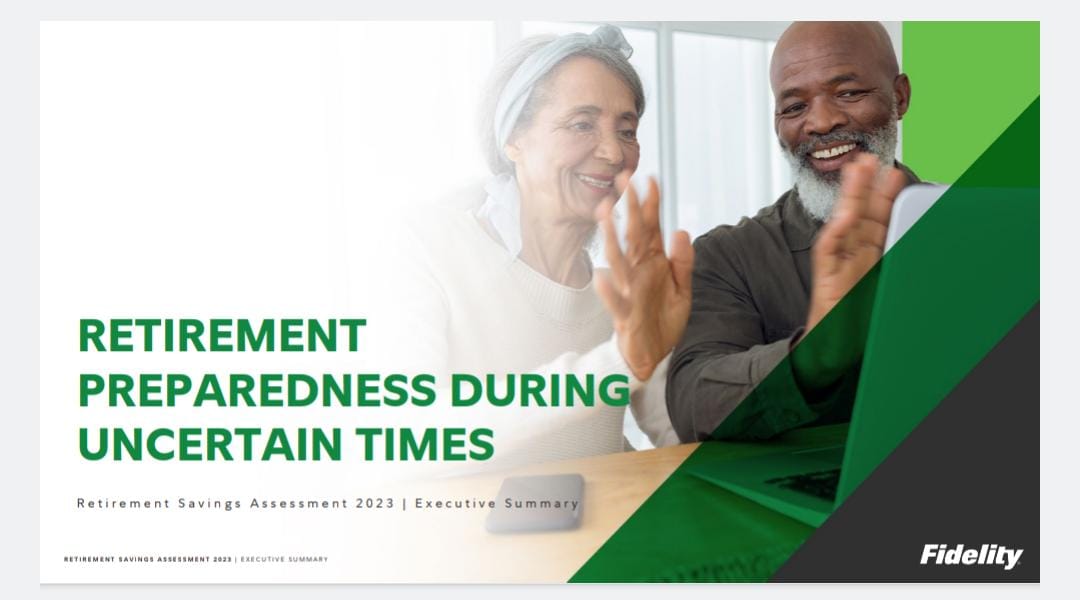Retirement preparedness during uncertain times
By Fidelity 2023 RSA Executive Summary Fidelity’s Retirement Savings Assessment is built upon comprehensive data from more than 3,500 survey responses that are run through the extensive retirement planning platform Fidelity uses every day with customers. The result: a numerical indicator showing whether savers are on track to meet estimated retirement income needs. The score places households into four categories on the preparedness spectrum, based on a household’s ability to cover estimated retirement expenses in a down market. Read book here










